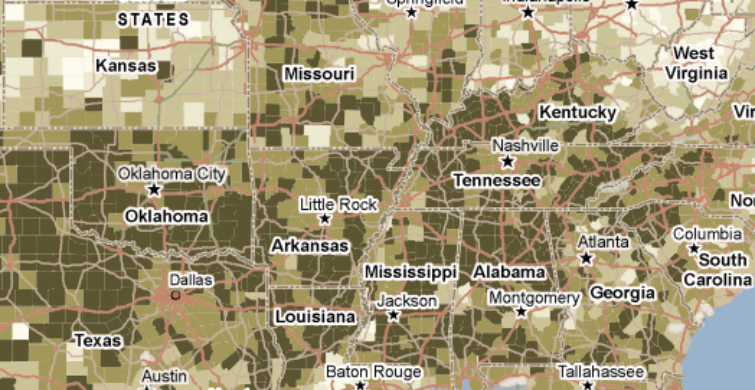Religion and the Republican Primary

In this year’s Republican Primary, some analysts, like Nate Silver of the New York Times’s FiveThirtyEight blog, have been using states’ religious makeup to predict the winner of the state’s primaries. The thinking is, states with larger evangelical populations are more likely to vote for a more conservative candidate like Newt Gingrich or Rick Santorum, and states with significant Mormon populations are more likely to vote for Mitt Romney. In one blog post, Silver writes:
“Then there was Colorado, a state that has reasonably similar demographics to Nevada, which Mr. Romney carried easily on Saturday. Colorado has somewhat fewer Mormon voters than Nevada, which hurts Mr. Romney — but it has somewhat more wealthy ones, which favors him. The betting market Intrade gave Mr. Romney about a 97 percent chance of winning Colorado entering the evening. But he lost the state by five points to Mr. Santorum.”
And later:
“Mr. Romney is zero-for-three so far in the Midwest, a region that is often decisive in the general election. He had tepid support among major blocks of Republican voters like evangelicals and Tea Party supporters, those voters making under $50,000 per year, and those in rural areas.”
You can use PolicyMap to look at these religious patterns. Here is a map of the protestant evangelical population:
As you can see, evangelicals are clustered in the south, areas where Newt Gingrich and Rick Santorum have done relatively well so far. Now, look at a map of the Mormon population. Note that the Mormon population is much smaller overall, so dark colors represent lower rates than in the evangelical map:
In this map, the Rocky Mountains form a stark dividing line between areas with high and low Mormon population.
It’s interesting to look at county-level results in states with geographically separated populations. In Colorado, where Mormons are concentrated in the west and there are more evangelicals in the east, Romney, who lost, had a better showing in the western portion of the state than he did elsewhere. In Florida, similarly, Romney won, but Gingrich had more support in the north of the state, which has a far higher evangelical population.